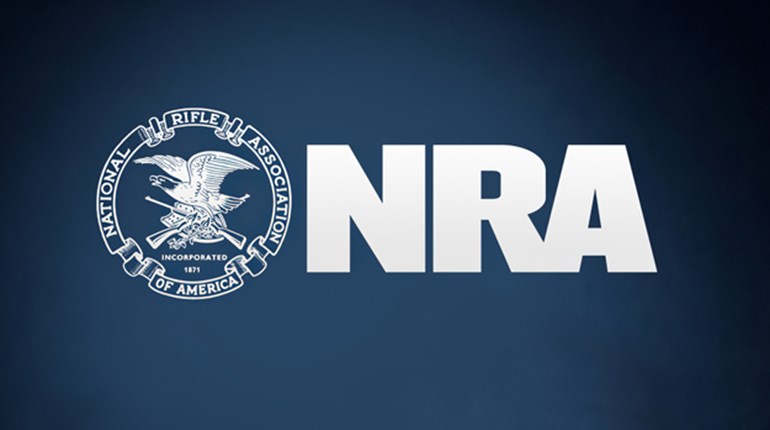
Disclaimer: This is a work of fiction. It isn’t true ... yet. But 2020 is only four years away.
WASHINGTON, Nov. 2, 2020 – President Hillary Clinton made her final pitch to voters Monday, hoping to seal the deal for a second term in the White House.
Joined by her husband, former President Bill Clinton, and daughter Chelsea in the Rose Garden, President Clinton called on American voters to have trust in her that the hardships and loss the nation has endured during her first term can only be healed by staying the course.
“The challenges we’ve faced over the past four years,” Clinton said, “are surpassed only by the promise of a new America—defined by openness, tempered by global consensus and protected by common-sense reform of our constitutional traditions.”
Meanwhile, on Capitol Hill, Democratic leaders in both houses of Congress urged voters to return President Clinton to the White House—in the words of Senate Majority Leader Charles Schumer, “to finish the work that our troubled times demand of us.” Since then, several cities—most notably Chicago—have won multi-billion-dollar judgments against the firearms industry …
Indeed, much of the criticism leveled against Clinton throughout the campaign has centered on the tragedy and turmoil of the past four years, including the flood of refugees from Syria that some have blamed for the emergence of the Islamic State in the United States (ISUS); skyrocketing violent crime over the past two years that critics say is a direct result of Clinton’s policy of “ending the prison-industrial complex in America”; and, of course, last year’s 9/12 terrorist attacks at the Department of Energy’s Pantex Plant and Hanford facilities, and the cesium-137 bombings that followed.
Although public health experts and criminologists say the full fallout of these developments will take years, if not decades, to assess, University of Virginia political scientist Larry Sabatico has called the past four years “the most harrowing and nationally tragic presidential term since Lincoln’s first.” Many, no doubt, would agree.
On Saturday, Clinton’s opponents, including many gun owners’ groups, law enforcement organizations, veterans’ charities and former national security officials, assembled on the National Mall in Washington. Carrying signs calling on voters to “Defeat the Dynasty,” “Rescue Liberty” and “Restore the Rule of Law,” the protestors—some 300,000 by many estimates—were peaceful and dispersed quietly, police say, with no major arrests reported.
One of the biggest contingents present was American gun owners’ groups, led by the NRA, who warned that a second Hillary Clinton presidency “could spell the end of the Second Amendment-protected rights that have kept us free and safe since our nation’s birth.”
Indeed, Clinton’s success in winning the assault weapons ban as part of the 2018 Crime Control Act, and her successful legislative push in 2017 to overturn the Protection of Lawful Commerce in Arms Act, stunned even gun-safety advocates. Since then, several cities—most notably Chicago—have won multi-billion-dollar judgments against the firearms industry, and at least three major U.S. brands have shuttered factories and laid off thousands in response.
“Our shareholders said they just couldn’t afford the risk anymore,” said Blackstone River Arms president William McLean. “It just wasn’t worth it.”
Much of Blackstone’s business was built on its AR-15 family of rifles, but with passage of Clinton’s 2018 assault weapons ban, Blackstone and three other manufacturers chose to cease operations rather than shift to handgun manufacturing—as some in the industry did—because, as McLean said, “It’s a losing proposition in the current climate.”
These fears may not be unfounded: The Supreme Court’s 2018 Wilmette v. Whittlesey decision—in a case inflamed by race and perceived injustice, and decided by the tie-breaking vote of Chief Justice Barack Obama—held that there is no individual right, unconnected to militia service, to own any firearm.
Moreover, some legal analysts say that firearms not commonly used in 18th-century militia service—for example, the semi-automatic handguns targeted by Clinton’s proposed legislation establishing a mandatory national handgun buyback—would likely pass judicial review under the current Supreme Court.
At a campaign rally last week, House Speaker Nancy Pelosi said, “Handguns are the true ‘weapons of mass destruction’ in our cities, and we won’t rest until these tools of oppression and terror are banished from our nation like the institution of slavery.”
Despite a longstanding tradition of not immersing the bureau in politics, FBI Director Eric Holder nevertheless agreed. “If we really want to attack the scourge of gun violence in America, banning assault weapons is at best a half-measure,” Holder said. “Handguns are responsible for more than 20 times as many deaths.” While gun-rights organizations have cried foul at this as a misleading statistic … it appears that the ranks of handgun owners are diminishing significantly.
While gun-rights organizations have cried foul at this as a misleading statistic—arguing that handguns are used far more often to stop crime than to commit it—it appears that the ranks of handgun owners are diminishing significantly. Following the example set by the Veterans Administration, three years ago, the Social Security Administration (SSA) stepped up enforcement of its rule barring gun ownership to recipients who have “representative payees.”
To date, almost a million seniors have chosen to surrender their firearms—mostly handguns owned for self-protection in the home—rather than give up their Social Security payments, and at least 3 million more SSI recipients are technically barred from owning a gun under current SSA rules. With Americans’ ownership of firearms monitored through Hillarycare and tracked by HealthWatch, enforcement of the regulations is, at this point, mainly a question of budgetary priority.
Moreover, at the international level, it’s not yet clear how the provisions of the United Nations Arms Trade Treaty—which the U.S. Senate ratified and President Clinton signed last year—will be promulgated in domestic U.S. law. However, U.N. Ambassador Michael Bloomberg has defended the treaty’s open-ended, provisional mandates as “a living, breathing document that can change today to meet tomorrow’s challenges.”
Appearing at a ceremony honoring his decades of public service and philanthropy, the former New York City mayor called the Arms Trade Treaty—which regulates the ownership and transfer of firearms through international registration and reporting—“an essential tool to combat suffering and tragedy both here at home and around the world.”
While membership in gun-rights groups has boomed in recent years in response to these developments, their election-season messaging has been largely muted through new campaign reform laws passed by Congress in 2018, and many right-of-center political organizations have been targeted for investigation by federal authorities.
“Republicans can call them ‘blackouts’ all they want,” said FEC Commissioner Debbie Wasserman-Schultz, “but Citizens United in no way allows for the kind of election communications that
































